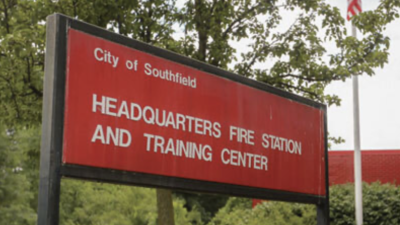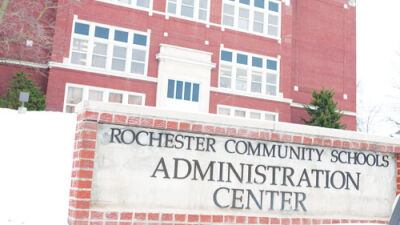SOUTHFIELD — Oakland Community College and Lawrence Technological University signed a pre-engineering transfer articulation agreement allowing OCC students to transfer their credits seamlessly into one of the five LTU engineering disciplines Nov. 4.
LTU President Tarek M. Sobh said that the driving force behind this agreement is the shortage of engineers that the U.S. is currently facing.
“Regardless of whether they are engineers, scientists, business professionals, etc., there is a need to increase and significantly enrich the pipeline to universities like ours,” Sobh said.
He said they hope to “get more students either from high schools or from community colleges interested from the get-go to do their majors in such fields because of the immense shortage across the country.”
“The Global Talent Crunch” study by Korn Ferry, a global organizational consulting firm, warns that there is insufficient human talent to fill all of the jobs available. The study indicates that by 2030, there will be a human talent shortage of 85 million people.
“In tech alone, the U.S. could lose out on $162 billion worth of revenues annually unless it finds more high-tech workers,” the study found.
Data from the U.S. Bureau of Labor Statistics projects a 25% increase in the demand for software engineers, a 14% increase for chemical engineers, and a 10% increase for biomedical engineers between 2021 and 2031. The national average growth rate for all occupations is 5%.
LTU offers undergraduate engineering programs in five areas: biomedical engineering; civil and architectural engineering; electrical and computer engineering; engineering technology; and mechanical, robotics and industrial engineering. At the graduate level, LTU offers 13 areas of study, and at the doctoral level, two.
With this articulation agreement’s implementation, OCC students can declare themselves as “pre-engineering” students. Joseph Petrosky, the associate provost of engineering, manufacturing and information technology at OCC, explained that OCC wants to spare students the headache of calculating how many of their credits will or will not transfer by creating a clear pathway through the pre-engineering program.
Petrosky said that once they’ve completed 66 to 69 credit hours with at least a 2.0 GPA at OCC, they can apply to Lawrence Tech with ease because of the agreement. Sobh said that he wants OCC students in this program to feel that they are part of the LTU community.
“The reality is that from day one, we want students to feel that from day one they are ‘dual enrolled,’” he said.
Petrosky said that the pre-engineering transfer agreement could be stacked with other programs at OCC. For example, high school students dual enrolled at OCC, high school students who are pursuing both their high school degree and an associate degree through the Oakland Early College Program, as well as students over 25 who are enrolled in the Michigan Reconnect program, which allows them to attend OCC with free tuition if they qualify, are all eligible to participate in the pre-engineering program.
Sobh said that LTU is one of the few universities in the state that did not see a decline in enrollment during the pandemic.
However, Petrosky said, “We have noticed a drop in enrollment, a drop that has been seen both in the state of Michigan as well as nationally. Part of it, for community colleges, is that enrollment typically is counter-cyclical with the job market. And it’s a very strong job market right now. So, typically, community colleges, you know, their enrollment is down when hiring is up. We are down compared to last year at this point.”
 Publication select ▼
Publication select ▼



























